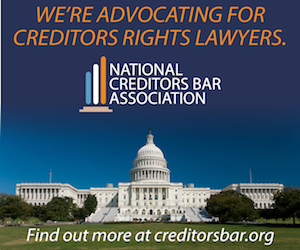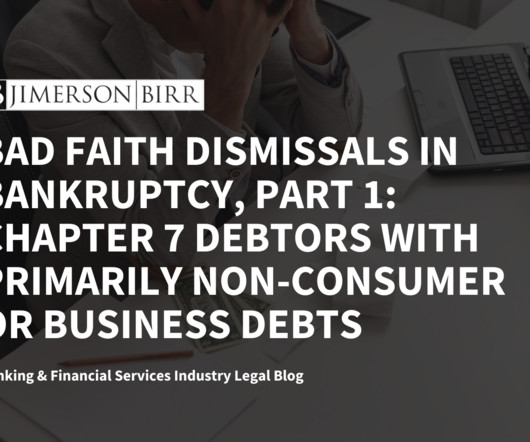Daily Digest – December 27. Judge Affirms Dismissal of FDCPA Case Using New Test from Ninth Circuit; Mich. Utility Allowed to Sell Debt Portfolios, But Must Disclose Sales to State Regulator
Account Recovery
DECEMBER 27, 2023
Judge Affirms Dismissal of FDCPA Case Using New Test from Ninth Circuit Mich. Utility Allowed to Sell Debt Portfolios, But Must Disclose Sales to State Regulator Ruling in N.Y.

















Let's personalize your content